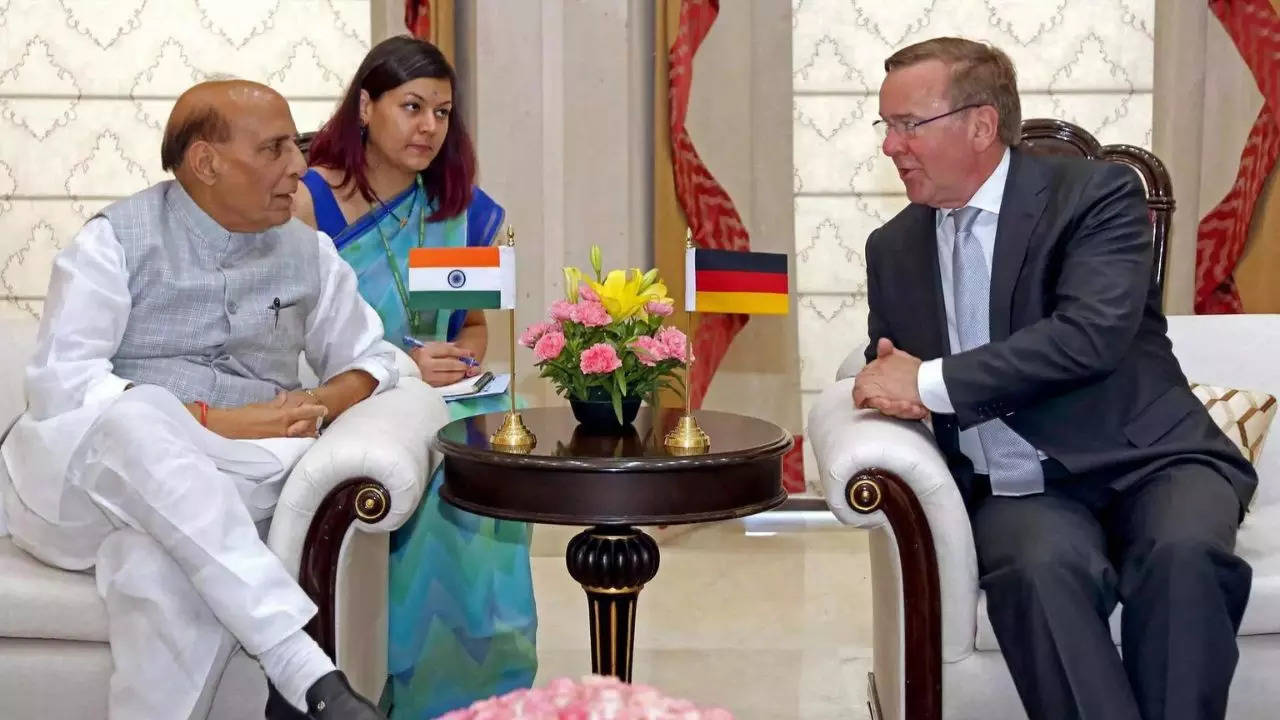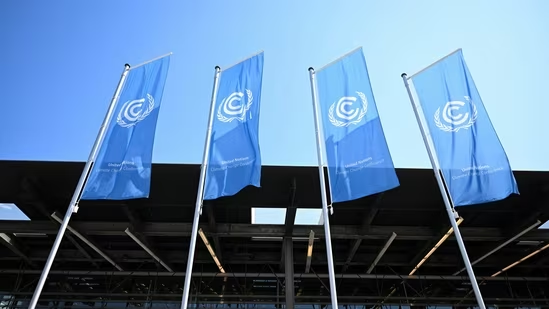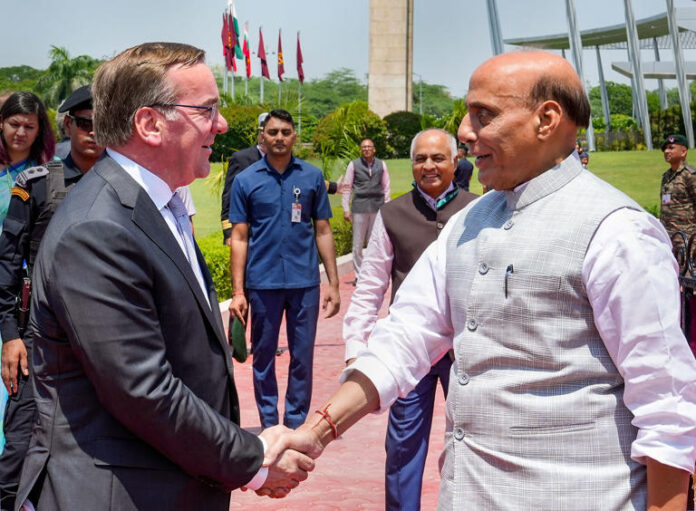ThyssenKrupp Marine Systems (TKMS), a German conglomerate, and Mazagon Dock Shipbuilders Limited have signed a memorandum of understanding (MoU) to jointly bid for a prestigious Indian government project worth INR 43,000 crore. The project aims to construct six advanced submarines under the “Make in India” program, which emphasizes indigenous manufacturing of major defense platforms. This significant collaboration between TKMS and Mazagon Dock Shipbuilders marks a milestone in technological advancement and strategic partnership.
German Defense Minister Boris Pistorius, during his visit to India, advocated for the construction of these submarines in collaboration with Germany. The project, known as P-75 India, was approved two years ago and holds paramount importance for strengthening the Indian Navy’s capabilities while promoting defense indigenization—an essential priority of the Indian government.
The MoU signing ceremony took place in Mumbai in the presence of German Defense Minister Boris Pistorius. The agreement signifies a crucial step towards the joint bid by TKMS and Mazagon Dock Shipbuilders for the multibillion-dollar submarine deal. Pistorius, expressing his satisfaction with the collaboration, acknowledged the significance of this partnership in a critical technological domain. He also highlighted the reliability, longevity, and advanced technology provided by German equipment.
ThyssenKrupp Marine Systems and Mazagon Dock Shipbuilders Collaborate for INR 43,000 Crore Submarine Project in India
TKMS, in a statement, pointed out the successful collaboration between India and Germany in the past, with the HDW Class 209 submarines, which were built in the 1980s and continue to serve the Indian Navy. They now offer India the technologically advanced HDW Class 214 submarines and expressed pride in contributing to India’s national security.
Oliver Burkhard, CEO of TKMS, expressed the company’s commitment to the partnership, citing their longstanding relationship with India and the pride they take in the continued service of the submarines built in the 1980s. TKMS officials emphasized the extensive expertise, knowledge, and professional competence possessed by both parties to ensure the successful execution of the project.
The P-75 India project, approved by the Indian government two years ago, aims to bolster the navy’s capabilities and drive the indigenization of defense manufacturing—an integral priority of the Indian government. The strategic partnership (SP) model is employed, wherein an Indian strategic partner collaborates with a foreign original equipment manufacturer (OEM) to establish production facilities in India for manufacturing major defense platforms.
The progress of the project over the next few months remains to be seen. German Defense Minister Boris Pistorius expressed his campaign for the collaboration during his talks with Indian Defense Minister Rajnath Singh. The P-75I initiative, part of the submarine-building program sanctioned by the Cabinet Committee on Security in 1999, has experienced a notoriously slow pace.
ThyssenKrupp Marine Systems and Mazagon Dock Shipbuilders Join Forces for INR 43,000 Crore Indian Submarine Project
However, with the withdrawal of France’s Naval Group and Russia’s Rubin Design Bureau from the bidding process a year ago, TKMS is considered one of the main contenders for the submarine deal. South Korea’s Daewoo Shipbuilding & Marine Engineering Company is also in contention, proposing a submarine design based on German technology.
The submarines constructed under the P-75I project will incorporate air independent propulsion (AIP) systems, enabling longer underwater endurance and enhanced combat capabilities. The strategic partner is required to ensure a minimum of 45% indigenization in the first submarine, gradually increasing to 60% in the sixth submarine.
With the clearance of P-75I in 2021, India has taken a significant step toward fulfilling its 30-year submarine construction program. The Indian Navy plans to operate a fleet of 18 new conventional submarines and six nuclear-powered submarines. Additionally, the government approved the construction of four nuclear-powered ballistic missile submarines in 2015, thereby aligning with the revised submarine-building program of 1999.
In summary, the collaboration between ThyssenKrupp Marine Systems and Mazagon Dock Shipbuilders for the INR 43,000 crore submarine project in India reflects a crucial milestone in defense technology and strategic partnership. This project not only strengthens the capabilities of the Indian Navy but also furthers the objective of indigenization in defense manufacturing, thereby bolstering India’s national security.

